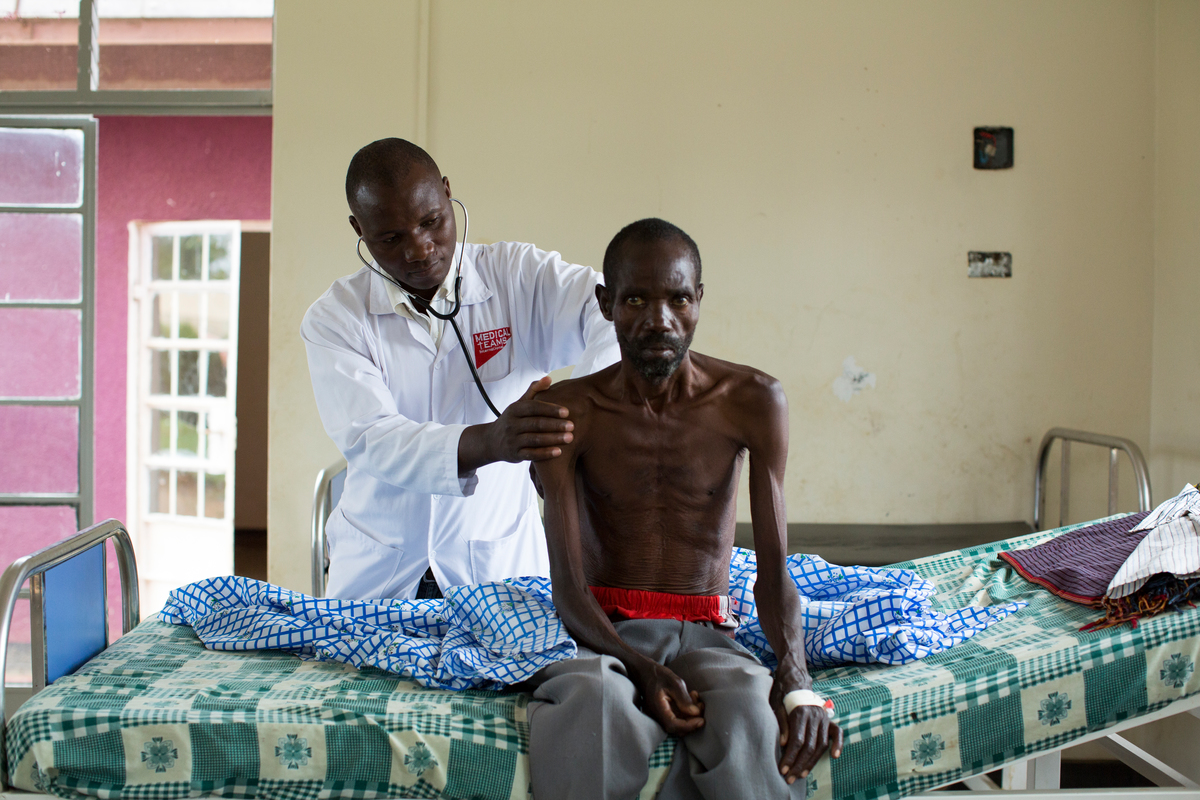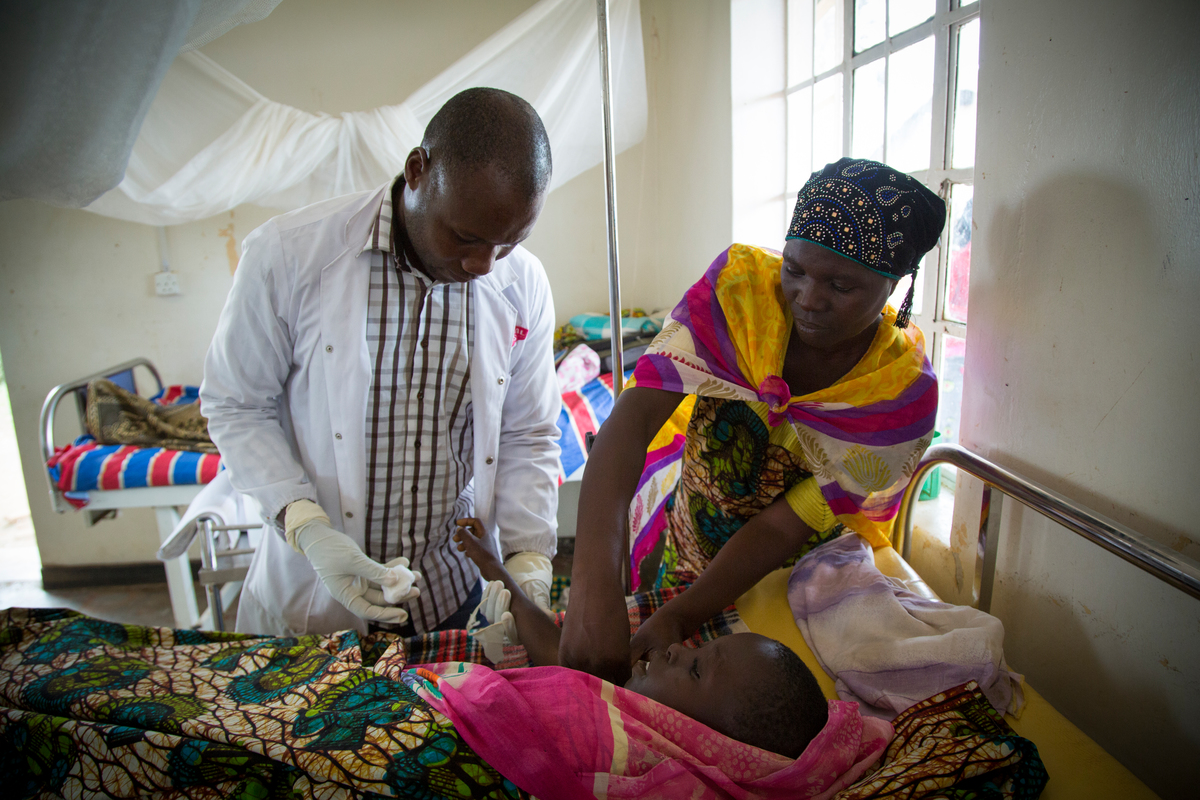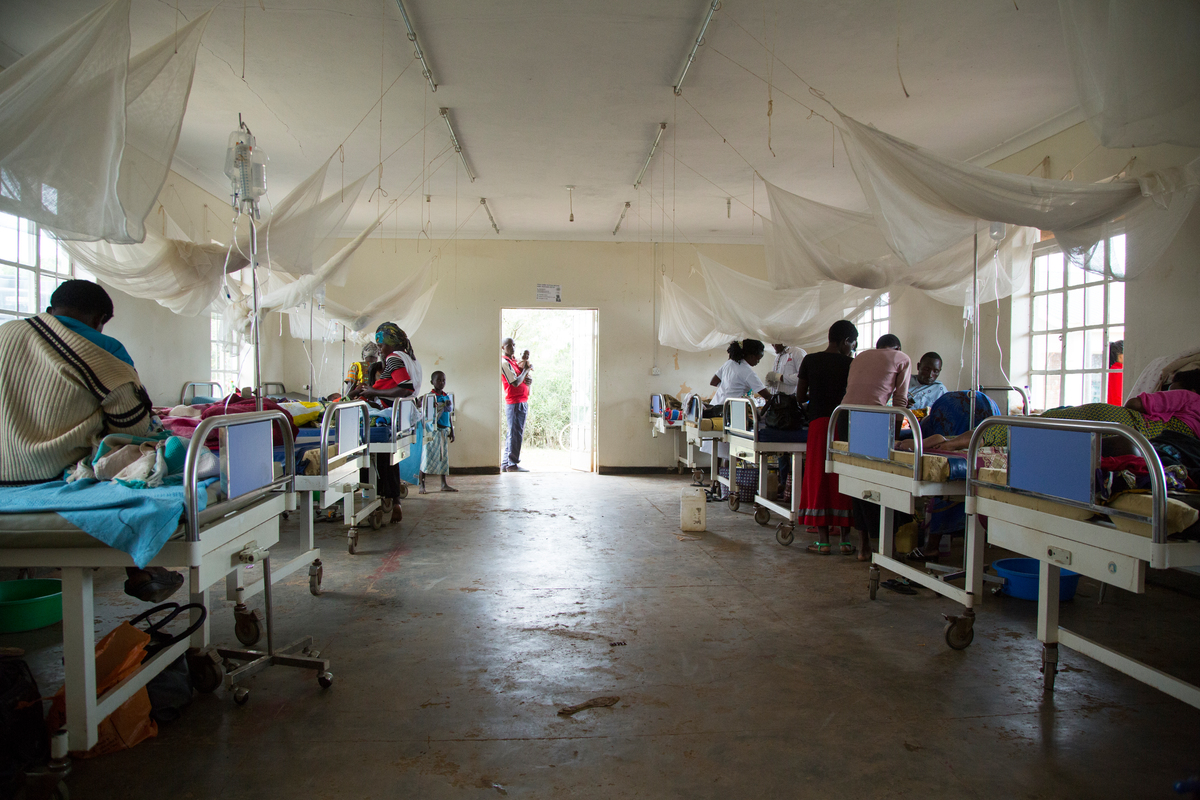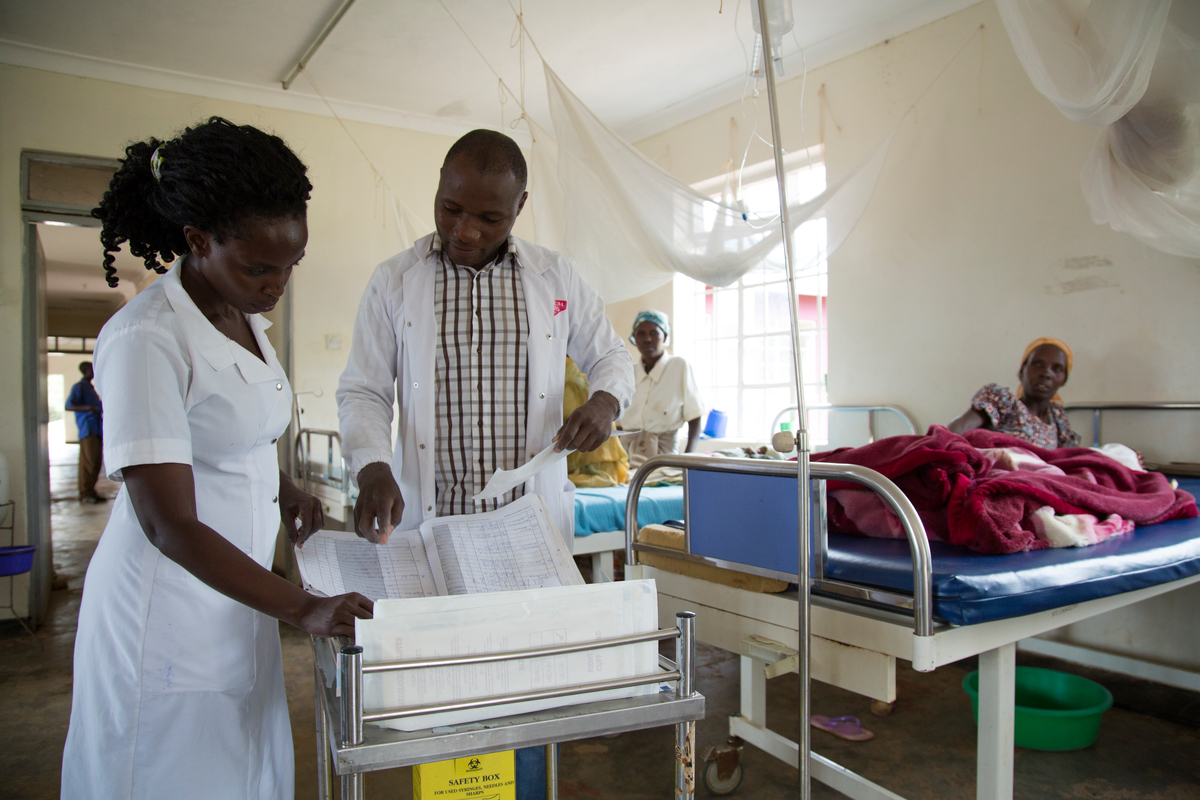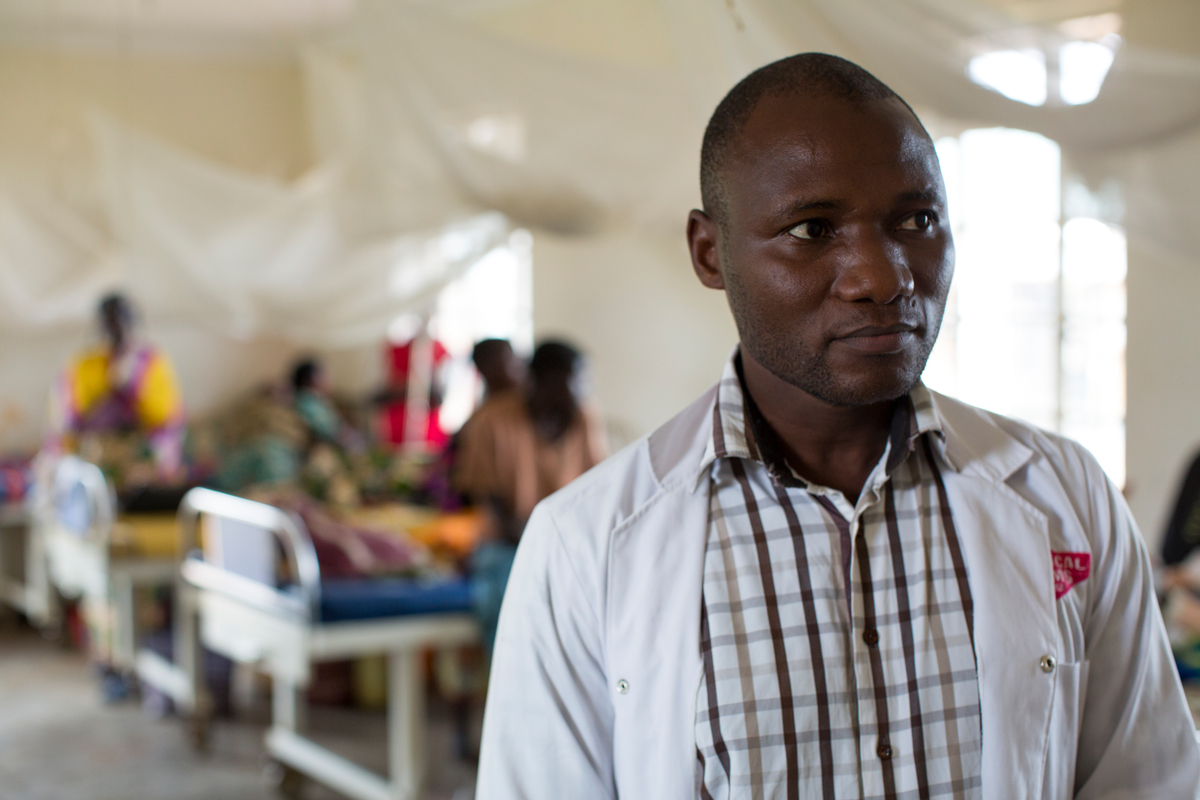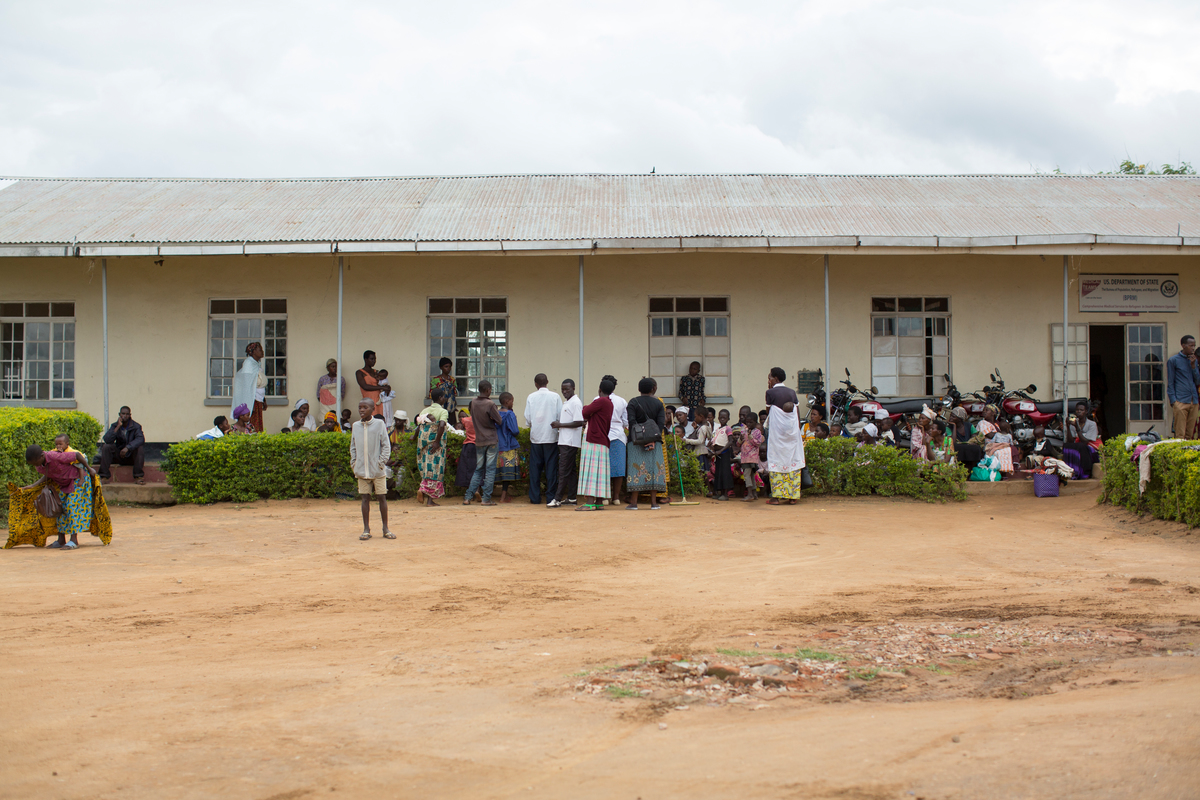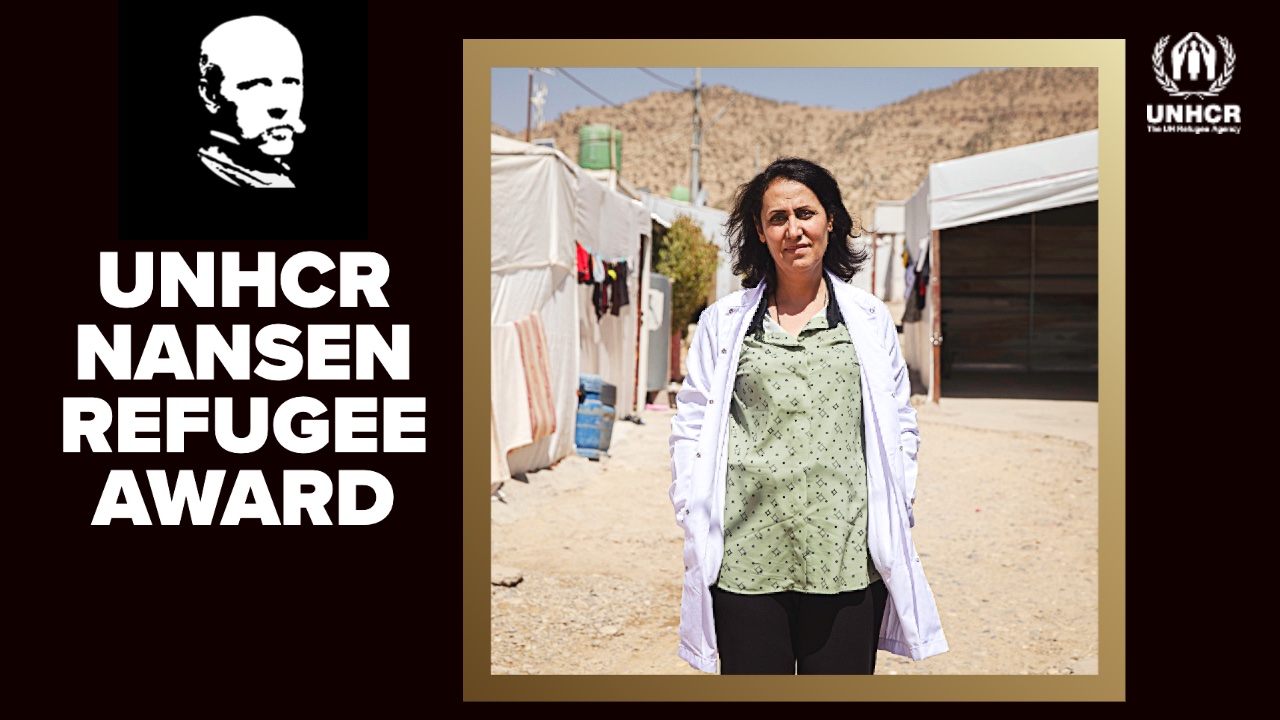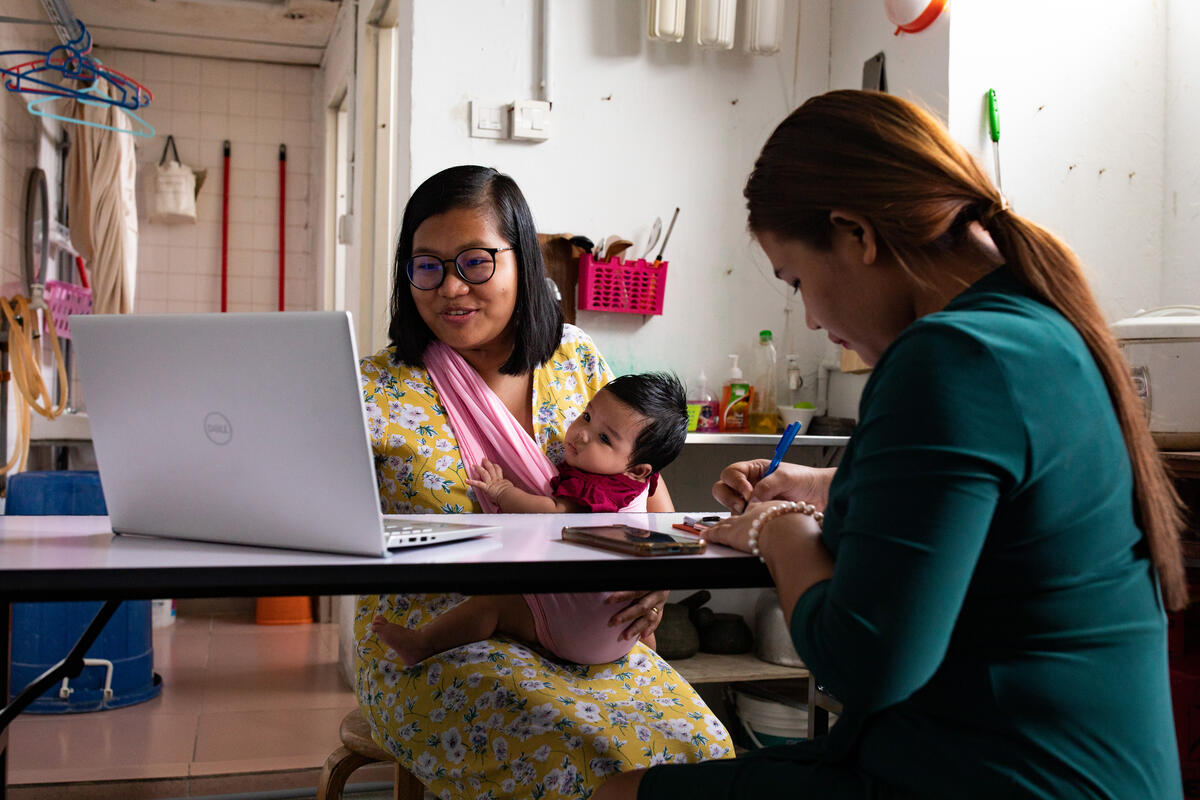Burundian nurse cares, and is cared for, in Uganda

Burundian nurse cares, and is cared for, in Uganda
Bosco starts his daily work routine at eight o’clock. White lab coat on, he heads straight for the paediatric ward, where all the beds are occupied. Many children shiver with high fever under their blankets because of malaria. A few malnourished toddlers are hooked up to drips supplying therapeutic food.
Bosco checks on his little patients with a gentle touch here and a heartfelt “sorry” there when a patient cries out in pain. Worried mothers seem comforted by his caring manner.
“Saving lives is a huge responsibility,” he says. “This is what I always wanted to do and I wouldn’t change my job for anything.”
A refugee from Burundi, 35-year-old Bosco works as a nurse in a health centre in Nakivale settlement, nearly 300 kilometres west of Uganda’s capital Kampala.
“I am so thankful that I could use my skills and qualifications to do what I love to do.”
The facility is one of 70 in Uganda that provides services to both refugees and locals, the outcome of a national “integrated service delivery” programme. Receiving steady funding, Nakivale health centre has grown in size and capacity over the years, keeping pace with the increasing refugee population. Today, it serves more than 120,000 refugees and 40,000 Ugandans.
The integrated service delivery programme also allows health centres like Nakivale to employ Ugandans and refugees alike, based on a competitive selection process. It is this process that gave Bosco the opportunity to do what he is so passionate about – caring for others.
“Some days, there are more locals than refugees here, especially at the Nutrition Services Department,” says Bosco. “Whether a patient comes from the village or is a refugee, it doesn’t matter. For me, they are all people in need of care, and I treat them equally.”
In the men’s ward, William, a 60-year-old Ugandan patient with a chest complaint, sits up on the edge of his bed as Bosco monitors his laboured breathing. “Every time I fall sick I come to this hospital. They always manage to sort me out without fail,” he says.
William lives in Ruhoko, a village in the outskirts of Nakivale settlement. He says he has used the health centre for over 10 years, during which he has seen services improve as refugee numbers rose. “There are certainly more drugs than there used to be. It’s a good thing that refugees have settled here. We live like one community.”
In 1998, Bosco enrolled in a school for paramedics in Burundi’s Ngozi province and got a degree in nursing in the midst of a civil war. “There was so much fear and uncertainty those days. My classmates and I used to spend one week at school and one week in the bush hiding from the gunmen who wanted us to fight.”
By 2001, he feared that he would be forcibly recruited and get swept up in the violence. Kissing his mother goodbye, he crossed the border into Tanzania and then Uganda – his nursing qualification tucked among his few belongings. He made it to Nakivale within weeks.
After starting out as a volunteer at the clinic 16 years ago, he has been on a full-time contract since 2005, with a monthly salary and family benefits.
“I am so thankful that I could use my skills and qualifications to do what I love to do,” he says. “I consider myself self-sufficient as I am able to provide for my family and pay for my children’s education. I have a dignified life here.”
He is both thankful and surprised by the “warm welcome” he found in Uganda. “I never thought I would be able to find such a rewarding job and follow my dream in a foreign country.”
The extent of that welcome became clear when Bosco recently became ill himself. Diagnosed with cancer, he had to travel to neighbouring Kenya for treatment. “My colleagues raised the money to help me undergo surgery. I don’t know where I would be right now if it wasn’t for them.”
But Bosco still needs further treatment. He hopes to be resettled to another country with more advanced medical care. “Uganda gave me so much, but I have to look after my health now. My family needs me, and I need them.”
The integrated service delivery as provided in Nakivale clinic is a key element of Uganda’s Refugee and Host Population Empowerment (ReHoPE) strategy, a multi-partner initiative which encourages refugees and their hosts to live together as one community and become more self-reliant.
“The refugees and the Ugandan people need the world’s support.”
The government grants refugees freedom of movement, the right to work and start a business and access public services such as education, healthcare and justice. Refugees are also given a plot of land, either by the government or local communities, to build their home and to cultivate.
But with over 1.25 million refugees and more than half of them arriving in less than a year, this policy is under threat. The country has limited resources and Uganda cannot continue to support so many refugees without help.
“Uganda’s approach to extend and protect refugee rights is commendable but it is not enough to enable refugees to thrive,” says Bornwell Kantande, the representative in Uganda for UNHCR, the UN Refugee Agency. He explains that refugees’ ability to be truly self-sufficient is directly linked to available resources and investments by humanitarian and development partners.
In support of Uganda’s progressive refugee policy, the World Bank has approved Uganda’s request for a U $50 million loan and UNHCR has pledged US$31 million for ReHoPE. But there remains a need for member states, who endorsed the Comprehensive Refugee Response Framework as part of the New York Declaration last year, to support host countries like Uganda taking in large numbers of refugees by timely and robust funding of programmes like ReHoPE.
“The refugees and the Ugandan people need the world’s support,” says Kantande.



